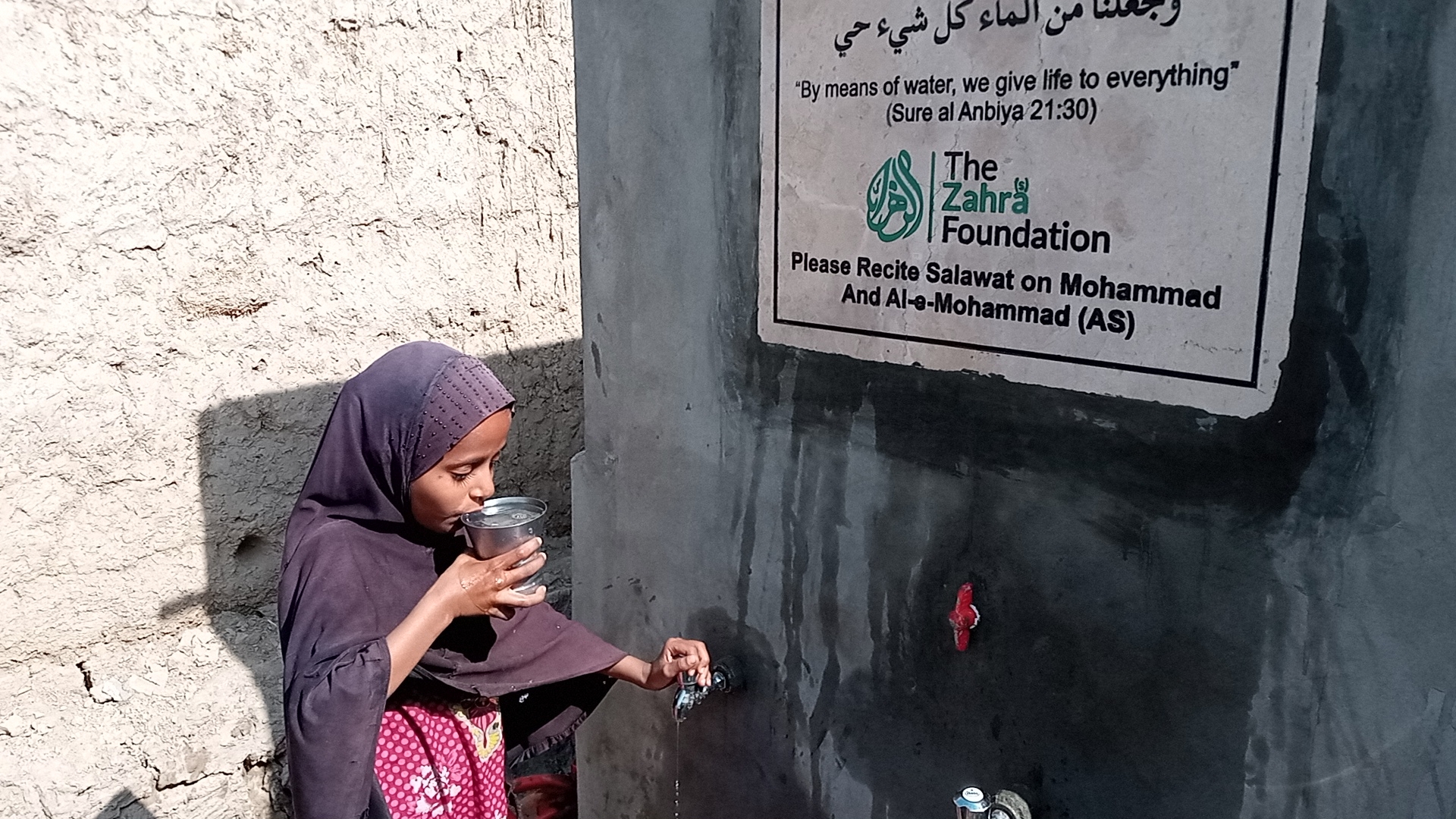There is a global water crisis.
785 million people around the globe do not have access to a basic drinking water service and 2 billion people around the globe use drinking water that is contaminated with faeces.
1 in 9 people around the globe do not have access to safe and clean drinking water. The consequences of this are multiple and affect all spheres of life.
At The Zahra(s) Trust Canada, we work hard to provide sustainable water solutions for communities in need. This project provides different options for water solutions that vary based on region typography and resource availability.



